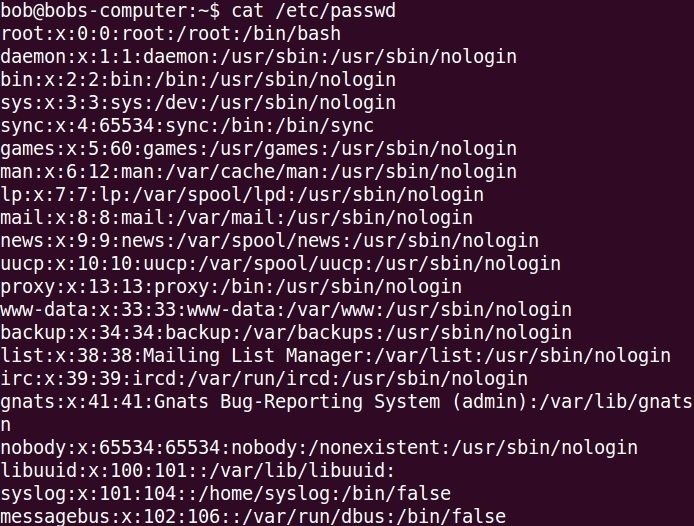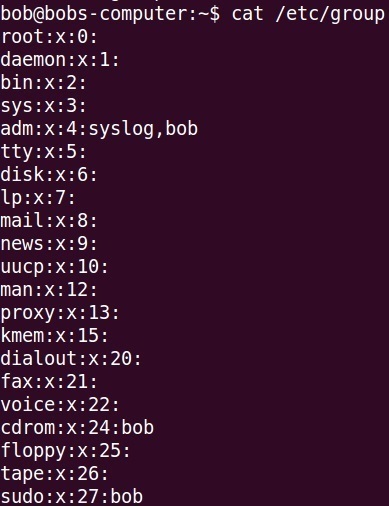UID (User Identifier) and GID (Group Identifier)
A UID (user identifier) is a number assigned by Linux to each user on the system. This number is used to identify the user to the system and to determine which system resources the user can access. UIDs are stored in the /etc/passwd file:
The third field represents the UID. Notice how the root user has the UID of 0. Most Linux distributions reserve the first 100 UIDs for system use. New users are assigned UIDs starting from 500 or 1000. For example, new users in Ubuntu start from 1000:
When you create a new account, it will usually be give the next-highest unused number. If we create a new user on our Ubuntu system, it will be given the UID of 1001:
Groups in Linux are defined by GIDs (group IDs). Just like with UIDs, the first 100 GIDs are usually reserved for system use. The GID of 0 corresponds to the root group and the GID of 100 usually represents the users group. GIDs are stored in the /etc/groups file:
The third field represents the GID. New groups are usually assigned GIDs starting from 1000:
Geek University recommends the following video course to get you started with Linux.







